Essential Dairy Food Standards
Food industry standards are essential regulations that ensure the safety, quality, and transparency of food products, protecting consumers and fostering trust in the market.
| Table of Contents |
| 1. Understanding Food Industry Standards |
| 2. Types of Food Standards |
| 3. The Importance of Compliance |
| 4. Dairy Food Safety Standards |
| 5. Dairy Food Quality Standards |
| 6. Organic Dairy Standards |
| 7. What are food industry standards? |
| 8. What is the ISO food industry certificate? |
| 9. ISO Standards in the Food Industry |
| 10. International Standards for the Food Industry |
| 11. Dairy Food Standards in Iran |
| 12. Kalber Dairy: Upholding Excellence through Global Certifications |
| 12. Dairy Food Standards in the United States |
| 13. Conclusion |
Understanding Food Industry Standards
Food industry standards are a set of regulations and guidelines that govern the safety, quality, and labeling of food products. These standards are essential to ensure that the food we consume is safe, nutritious, and free from harmful contaminants. In addition to safeguarding public health, food standards play a crucial role in protecting consumers from misleading claims and false advertising.
Types of Food Standards
Food standards can be categorized into three main types: national, regional, and international.
National Standards: These are established by individual countries to regulate food safety, quality, and labeling within their borders. Each country develops its own standards based on its specific needs, legal framework, and public health concerns.
Regional Standards: These standards are developed by groups of countries within a specific geographic area, aiming to harmonize food regulations and facilitate trade among member countries. An example is the European Union, which sets food standards that apply across its member states.
International Standards: These are created by global organizations, such as the Codex Alimentarius Commission, a joint initiative of the World Health Organization (WHO) and the Food and Agriculture Organization (FAO) of the United Nations. International standards aim to ensure a high level of food safety and facilitate international trade by providing a common set of guidelines that countries can adopt or adapt.
Food standards encompass regulations for safety, quality, labeling, and packaging. These standards ensure that food products are safe from contaminants, meet quality expectations, and provide accurate information, helping consumers make informed choices.

The Importance of Compliance
Compliance with food standards is crucial for all stakeholders in the food industry, including producers, manufacturers, and retailers. Adhering to these standards not only ensures consumer safety and satisfaction but also helps businesses avoid legal issues and potential recalls. For companies involved in international trade, compliance with international food standards is particularly important to gain access to global markets and maintain a competitive edge.
Dairy Food Safety Standards
Ensuring the safety of dairy products is a critical concern within the dairy industry. The safety of dairy foods depends on various factors, including the environment in which the dairy animals are raised, the methods used to process and package dairy products, and the conditions under which they are transported and stored. Dairy food safety standards have been established to ensure that dairy products are safe for consumption.
One of the most widely recognized safety standards in the dairy industry is the Hazard Analysis and Critical Control Points (HACCP) system. This risk management tool identifies potential hazards in dairy production and processing, establishing critical control points to prevent, eliminate, or reduce these hazards to safe levels. The HACCP system is globally recognized and endorsed by international organizations such as the World Health Organization (WHO) and the Food and Agriculture Organization (FAO) of the United Nations.
Another crucial dairy food safety standard is the Good Manufacturing Practices (GMP) system. GMP provides guidelines for dairy manufacturers to ensure that their products are consistently produced and controlled according to stringent quality and safety standards. GMP covers a wide range of topics, including personnel hygiene, facility design, equipment maintenance, and thorough documentation practices.
Dairy Food Quality Standards
In addition to safety, maintaining high quality in dairy products is essential to meet consumer expectations. Dairy food quality refers to attributes such as taste, texture, appearance, and nutritional value. Quality standards help ensure these features are consistent and meet consumer demands.
One important quality standard for the dairy industry is the ISO 9001 standard of the International Organization for Standardization. ISO 9001 provides a framework for quality management systems (QMS) that can be applied to dairy processing and production. It requires organizations to establish and maintain a QMS that emphasizes meeting customer needs and continuous performance improvement.
The Safe Quality Food (SQF) program is another example of a quality management system used in the dairy industry. Recognized by retailers and food service providers globally, the SQF program offers a comprehensive approach to dairy food safety and quality management. This includes requirements for facility design, supplier management, product testing, and employee training to ensure that dairy products meet rigorous quality standards.
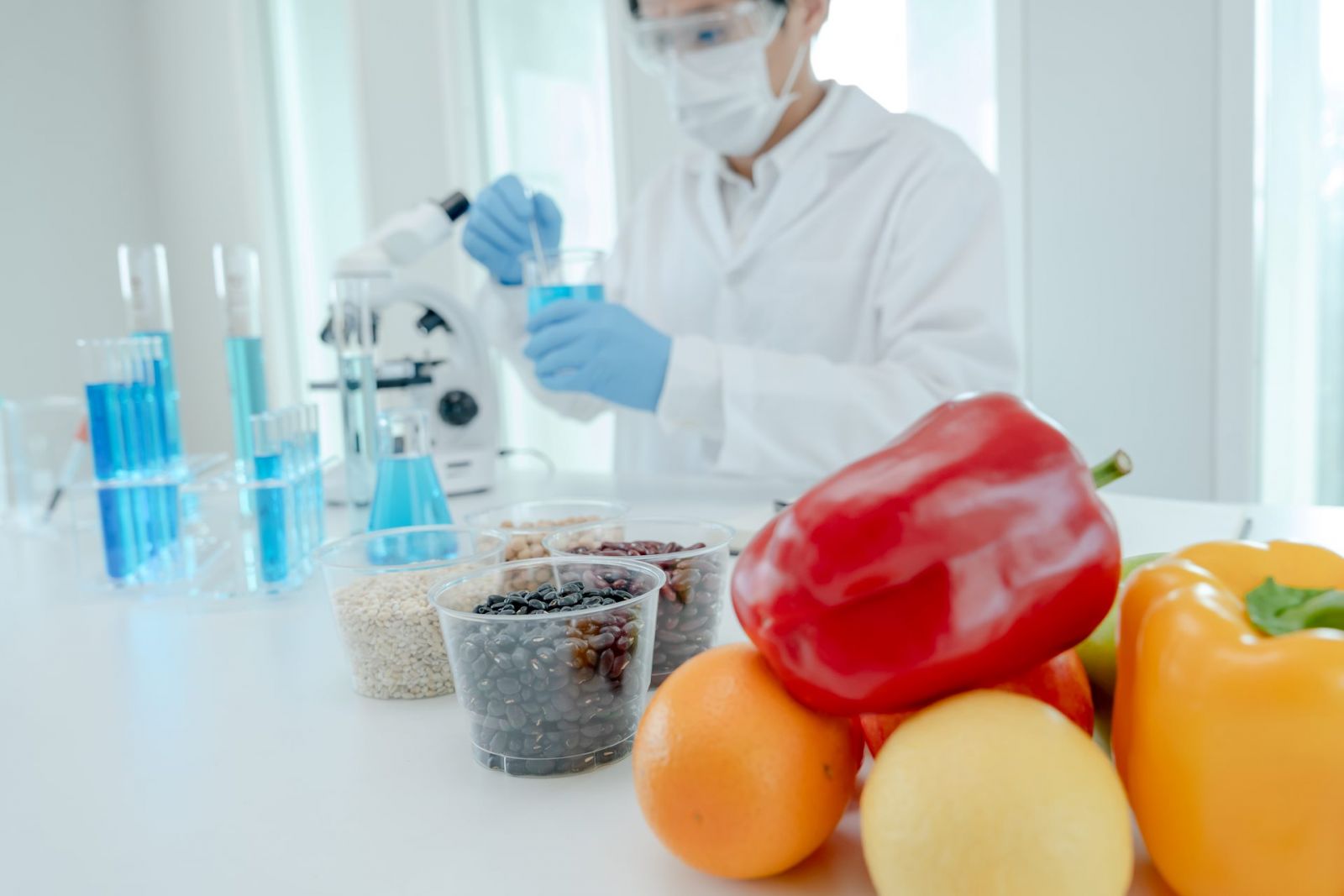
Organic Dairy Standards
Organic dairy products have gained popularity as consumers seek healthier and more sustainable options. Organic dairy standards ensure that these products are produced without synthetic pesticides, artificial fertilizers, or genetically modified organisms (GMOs), and that sustainable farming practices are used.
The USDA Organic program, administered by the United States Department of Agriculture, sets strict standards for organic dairy production, handling, and labeling. To be certified organic, dairy products must adhere to these standards, ensuring they are free from synthetic additives and produced using environmentally sustainable methods.
Similarly, the European Union Organic Program sets standards for organic dairy production and labeling across the EU. These standards require that dairy products be produced without synthetic pesticides, artificial fertilizers, GMOs, or irradiation, and emphasize the use of sustainable farming practices.
What are food industry standards?
Food standards usually include several key components including regulations and directive(s) for food safety, quality, labeling and packaging. These standards include:
1. HACCP standard
2. IFS food standard
3. BRC standard
4. Halal certificate
5. FSSC 22000 standard
6. GMP standard
7. Global GAP standard
8. SFBB standard
What is the ISO food industry certificate?
1. ISO 22000 standard
2. ISO 9001 standard
3. ISO 14001 standard
4. ISO/TS 22002-1 standard
5. ISO 21469 standard
6. ISO/TS 22002-4 standard
ISO Standards in the Food Industry
ISO (International Organization for Standardization) standards are critical in the food industry as they provide a structured framework for ensuring food safety and quality. These standards help organizations meet regulatory requirements, improve processes, and ensure that food products are safe for consumption and meet customer expectations. Several key ISO standards apply to the food industry:
- ISO 22000:2018 – Food Safety Management Systems
ISO 22000 is the international standard for food safety management systems. It offers a comprehensive framework for the development, implementation, and continuous improvement of food safety management systems across the entire food chain, from primary producers to retailers. The standard emphasizes hazard analysis, risk assessment, and control measures, ensuring that food products are safe and of high quality. ISO 22000 also includes requirements for communication, documentation, and internal audits, helping organizations maintain robust food safety practices.
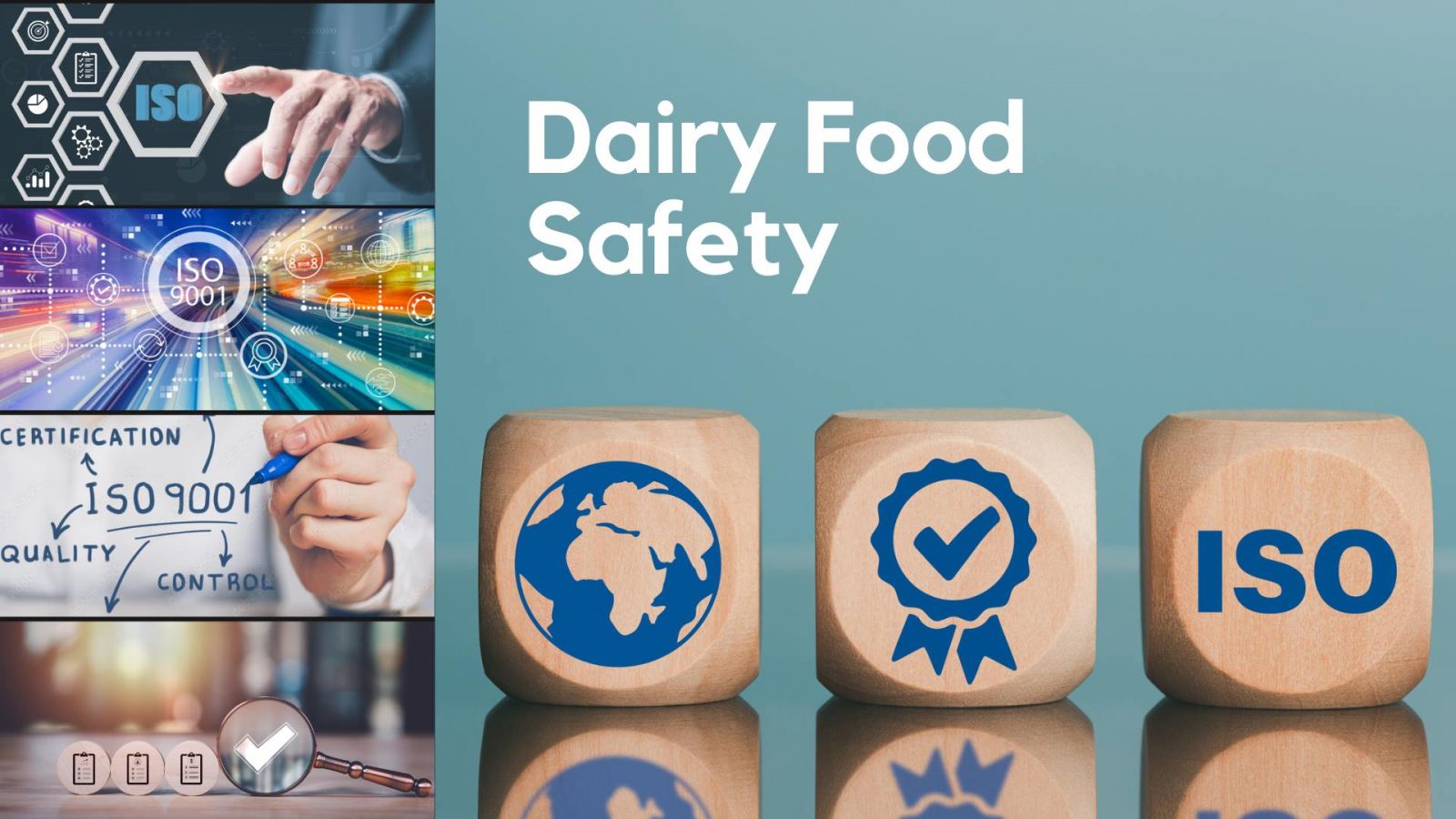
- ISO 9001:2015 – Quality Management Systems
ISO 9001 is the global standard for quality management systems and, although not specific to the food industry, it is highly relevant. This standard provides a framework for organizations to focus on customer satisfaction and continuous improvement. By implementing ISO 9001, food companies can enhance their processes, reduce waste, and increase efficiency, ensuring that their products consistently meet required quality standards.
- ISO 14001:2015 – Environmental Management Systems
ISO 14001 is the international standard for environmental management systems. While not exclusive to the food industry, it is significant due to the industry's environmental impact. This standard provides a framework for organizations to manage their environmental footprint, reduce waste, and conserve resources. By implementing ISO 14001, food companies can set environmental goals, monitor performance, and take corrective actions, contributing to sustainability.
- ISO/TS 22002-1:2009 – Prerequisite Programs for Food Safety
ISO/TS 22002-1 is a technical specification that offers guidelines for the prerequisite programs necessary for food safety in food production. Prerequisite programs are the basic conditions and activities required to maintain a hygienic environment throughout the food chain, including cleanliness, hygiene, pest control, and personal hygiene. Implementing ISO/TS 22002-1 ensures that these programs are effective and compliant with food safety standards.
- ISO 21469:2006 – Safety of Machinery – Lubricants with Accidental Product Contact
ISO 21469 focuses on the safety of machine lubricants that may accidentally come into contact with food. Specifically designed for the food industry, this standard provides guidelines for the formulation, manufacture, use, and handling of such lubricants, ensuring they meet hygienic requirements and do not compromise food safety.
- ISO 22002-4:2013 – Prerequisite Programs for Food Safety – Production of Food Packaging
ISO 22002-4 is a technical specification that provides guidelines for prerequisite programs related to food safety in the production of food packaging. It establishes a framework to ensure that packaging materials and the manufacturing processes meet the necessary safety standards, thereby maintaining the safety and quality of the food products they contain.
International Standards for the Food Industry
Businesses in the food industry can pursue a variety of certifications beyond ISO to ensure food safety, quality, and compliance with global standards. Common questions arise, such as "What is the ISO certificate for the food industry?" Here are some key international standards:
-
HACCP Certification: HACCP (Hazard Analysis and Critical Control Points) is a food safety management system that identifies, evaluates, and controls hazards throughout the food production process. Originally developed in the 1960s by NASA and the Pillsbury Company to ensure food safety for astronauts, HACCP has since become a foundational standard in the food industry worldwide.
-
IFS Certification: The IFS (International Featured Standards) is a globally recognized set of standards for auditing and verifying the quality and safety of both food and non-food products, as well as related processes and services. Developed by the German Retail Federation (HDE) in collaboration with French retailers, IFS is now widely adopted by retailers and suppliers across the globe.
-
BRC Certification: The BRC (British Retail Consortium) standard is a global benchmark for food safety and quality management systems. Originally created by the British Retail Consortium, this standard helps retailers and food manufacturers meet legal requirements and ensure the safety and quality of food products, protecting consumers in the process.
-
Halal Certification: Halal certification provides guidelines and laws for the preparation and consumption of food and other products according to Islamic law (Sharia). "Halal" means permissible in Arabic, and the certification ensures that food, drinks, and other items meet the religious requirements for consumption by Muslims.
-
FSSC 22000 Certification: FSSC 22000 is a comprehensive food safety management system standard that outlines the requirements for ensuring food safety across the entire supply chain. Developed by the Foundation for Food Safety Certification (FSSC) in collaboration with the Global Food Safety Initiative (GFSI) and ISO, it is widely recognized as a rigorous standard for food safety management.
-
GMP Certification: Good Manufacturing Practice (GMP) standards provide detailed guidelines for manufacturing, testing, and quality control of food products, pharmaceuticals, and medical devices. These standards ensure that products are consistently produced and controlled according to established quality criteria, covering every aspect of production from raw materials to the final product.
-
Global GAP Certification: Global GAP (Good Agricultural Practices) is a set of voluntary standards developed by the non-profit organization Global GAP. These standards address food safety, sustainability, and social and environmental responsibility in agricultural production, ensuring that agricultural products meet high standards from farm to market.
-
SFBB Certification: The SFBB (Safer Food, Better Business) standard is a food safety management system created by the UK Food Standards Agency to support small food businesses. It provides guidance on good food hygiene practices and helps businesses develop methods to control food safety risks in their operations.
These certifications play a vital role in ensuring the safety, quality, and compliance of food products in the global marketplace.

Dairy Food Standards in Iran
For example, in Iran, there are various national standards for food products such as wheat flour, flat breads, spices and seasonings. These standards include product characteristics and test methods to determine these characteristics. Test methods in the food industry include a set of processes and techniques that are used to evaluate the quality and safety of food products. These methods can include physical, chemical and microbial tests.
In Iran, there are specific standards for food products that are determined and monitored by the Industrial Standards and Research Organization of Iran (ISIRI). These standards include various sectors including dairy products. Below I mention some standards related to food products, especially dairy products, in Iran:
ISIRI Standard 292:2015 - Milk and Dairy Products: This standard addresses the technical specifications and quality of milk and dairy products such as milk, yogurt, cheese, and butter, and includes quality, health, and composition criteria for these products. The purpose of this standard is to guarantee the health and quality of dairy products produced in Iran.
ISIRI Standard 1554:2019 - Pasteurized milk: This specific standard deals with pasteurized milk and specifies its health and quality requirements. This standard includes things such as pasteurization conditions, fat and protein content, and other physical and chemical characteristics of pasteurized milk.
ISIRI Standard 1567:2019 - Cheese: This standard deals with the technical specifications and quality of various cheeses and includes criteria related to the composition, taste, texture, and health characteristics of cheeses produced in Iran.
ISIRI Standard 1459:2019 - Yogurt: This standard deals with the quality and characteristics of yogurt, including production conditions, the type of microorganisms allowed, and its physical and chemical properties.
ISIRI Standard 1034:2017 - Butter: This standard deals with the technical and qualitative characteristics of butter and includes things such as fat percentage, structure and color of butter.
These standards are designed to guarantee the quality and safety of dairy products in Iran and require producers to comply with specific health and quality conditions. ISIRI standards play an important role in maintaining the health of consumers and improving the quality of food products in the country.
Kalber Dairy: Upholding Excellence through Global Certifications
Kalber Dairy stands out in the competitive dairy industry with a commitment to quality and safety, as evidenced by its array of esteemed certifications. Kalber certifications, including IRI Standard, HACCP, ISO 9000:2015, and Halal, reflect Kalber's dedication to maintaining rigorous standards across various facets of its operations.
Dairy Food Standards in the United States
Understanding and Meeting Legal Requirements
Dairy processors in the United States must ensure that their products comply with legal standards to be accurately labeled. These regulations, known as Standards of Identity, outline specific requirements for ingredients, composition, and processing that a product must meet to legally bear a particular name. These standards are detailed in the Code of Federal Regulations (CFR). For example:
- Yogurt must contain both Lactobacillus bulgaricus and Streptococcus thermophilus (21 CFR 131.200).
- Cheddar cheese must have a maximum moisture content of 39% and at least 50% fat in the remaining solids (21 CFR 133.113).
- Colby cheese can be made from unpasteurized (raw) milk if aged at a temperature of no less than 35ºF (1.7ºC) for at least 60 days (21 CFR 113.118). However, Monterey Jack must be made from pasteurized milk (21 CFR 133.153).
USDA Grading and Standards
In addition to adhering to the Standards of Identity, dairy processors can voluntarily opt for USDA grading to obtain a quality shield on their labels. This program is commonly used by large-scale manufacturers to demonstrate that their products meet specific quality standards, particularly for sales to large-volume customers or for export. For instance, butter labeled as U.S. Grade AA indicates that it has met high-quality standards verified by a USDA inspector.
The USDA Agricultural Marketing Service (AMS) offers grading services for various commodities, including dairy products. These grades provide a uniform quality language, with specific regulations found in 7 CFR 58. The USDA grading covers products such as American cheese, butter, cheddar cheese, dry milk products, ice cream, and Swiss cheese. Additionally, the AMS has set Dairy Product Quality Specifications for products not fully covered under the main grade standards, including light butter, margarine blends, mozzarella, ricotta cheese, yogurt, and more.
Dairy processors are responsible for understanding and complying with federal standards that dictate the composition, manufacturing, and quality of their products. Adhering to these Standards of Identity is essential for legal labeling. For those looking to further assure quality, the USDA offers a voluntary grading program that can enhance consumer confidence and marketability.
Conclusion
Food industry standards are vital for ensuring the safety, quality, and transparency of the food supply. By setting clear guidelines for safety, quality, labeling, and packaging, these standards protect consumers and foster trust in the food industry. National standards may vary depending on the country, product type and international standards. Whether at the national, regional, or international level, adherence to these standards is essential for the well-being of consumers and the success of food businesses.
Read More: What is the price of dairy products in different countries?
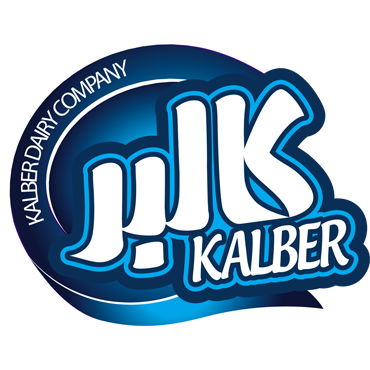
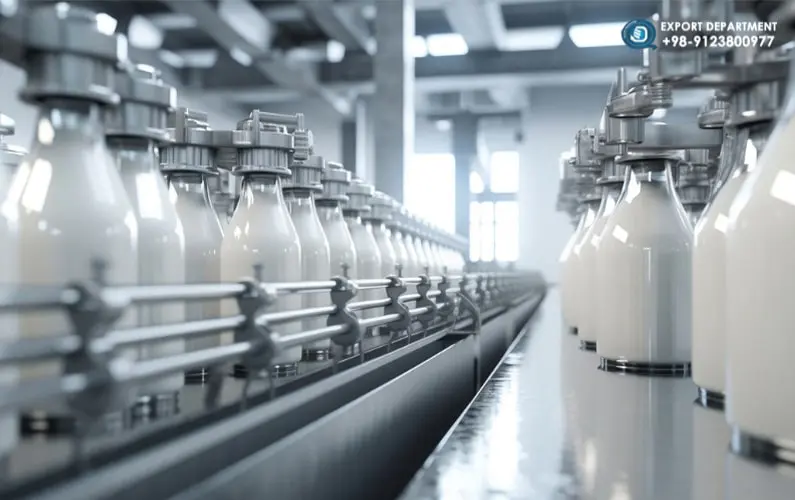
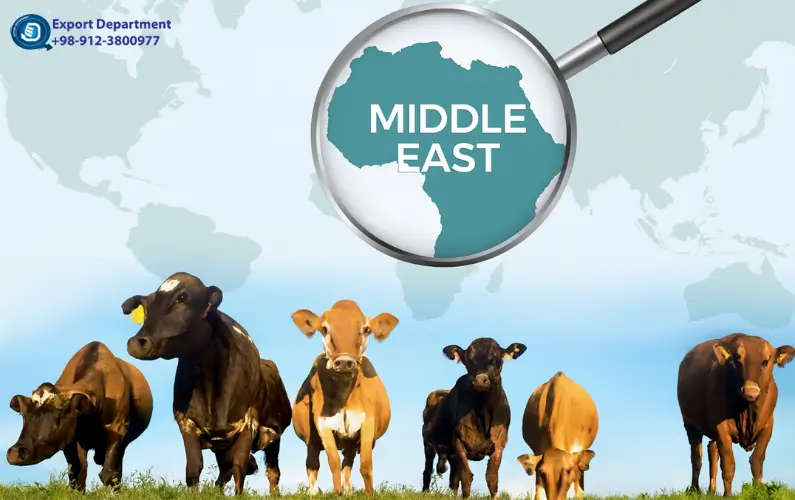
 (2).webp)
.webp)